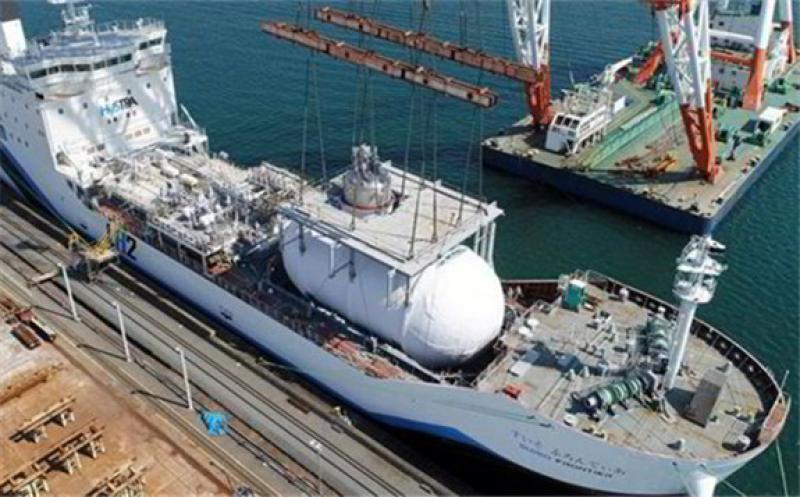A pilot project aiming to make the first international shipment of liquid hydrogen has been delayed again due to the Covid pandemic.

The Hydrogen Energy Supply Chain (HESC) project — which aims to ship grey hydrogen derived from brown coal from southeast Australia to Japan — is now up to a year behind schedule due to delays in the commissioning of the world’s first liquid hydrogen (LH2) carrier vessel, Kawasaki Heavy Industries’ Suiso Frontier.
The project partners had originally planned to make the shipment in March this year, but this was pushed back to this summer (July or August) because foreign engineers were unable to travel to Japan to oversee equipment installation on the vessel.
The commissioning of the ship has now been delayed again, and is not expected to travel to Australia until some time between October this year and March 2022, an HESC spokesperson told energy analyst and information provider S&P Global Platts.
The Suiso Frontier — “suiso” means “hydrogen” in Japanese — actually took to the water back in December 2019, but without its 1,250-square-metre vacuum-insulated LH2 storage tank, which was installed in March 2020.
However, the vessel's LH2 storage equipment was only approved in principle by Japanese classification society ClassNK last week.
LH2 must be stored at a staggeringly low temperature of minus 253°C — far lower than the minus 160°C used for international shipments of liquefied natural gas — with the liquefaction process reducing the volume of hydrogen gas by a factor of 800.
“The world's first liquefied hydrogen carrier, the Suiso Frontier, will arrive in Australia in the second half of the 2021 Japanese fiscal year — between October 2021-March 2022,” the spokesperson told S&P Global Platts. “Liquefied hydrogen will be taken back to Japan after the arrival of the Suiso Frontier.”
The HESC consortium aims to turn the project into a commercial venture in order to help Japan become a hydrogen economy, but commercial operations are not targeted until the 2030s, when carbon capture and storage would be needed to reduce the high carbon emissions from the gasification of brown coal.
The project partners are Japanese companies Kawasaki Heavy Industries, J-Power, Iwatani, Marubeni, Sumitomo, Eneos and Kawasaki Kisen Kaisha, as well as Australian energy supplier AGL and Anglo-Dutch oil giant Shell.